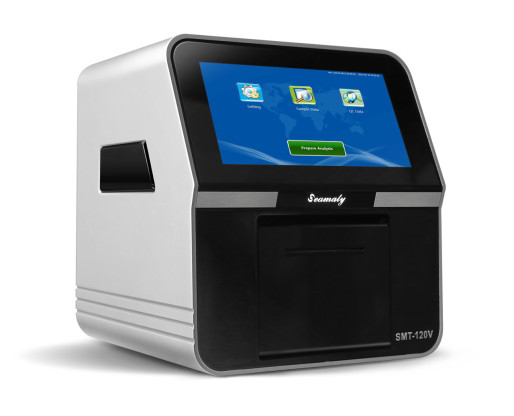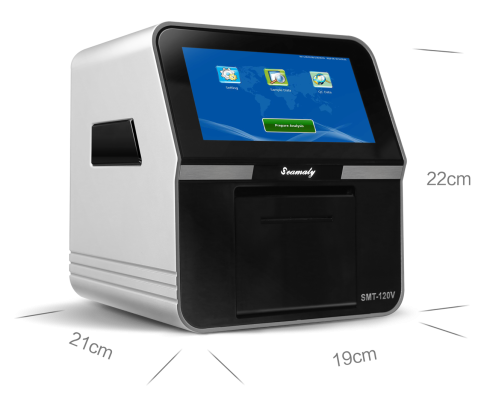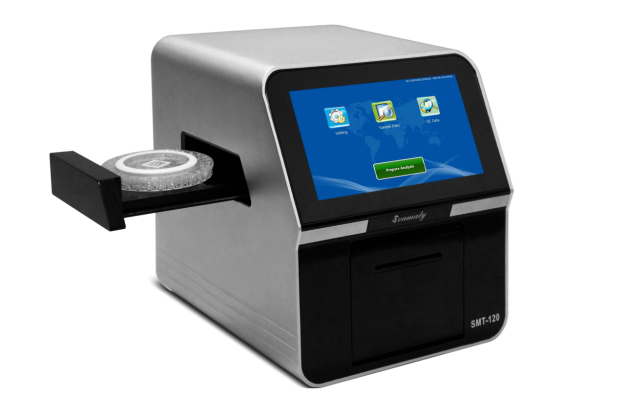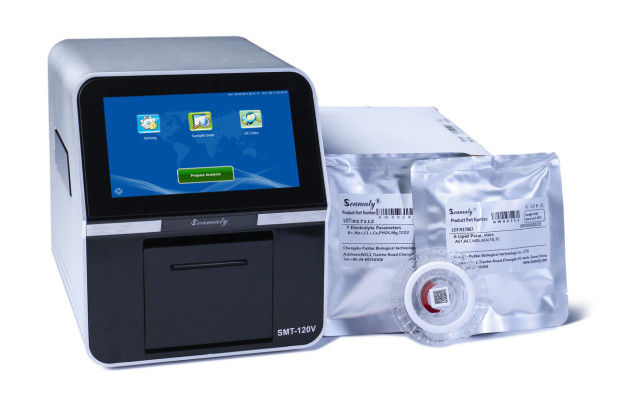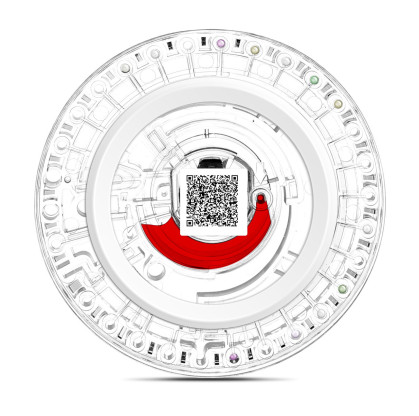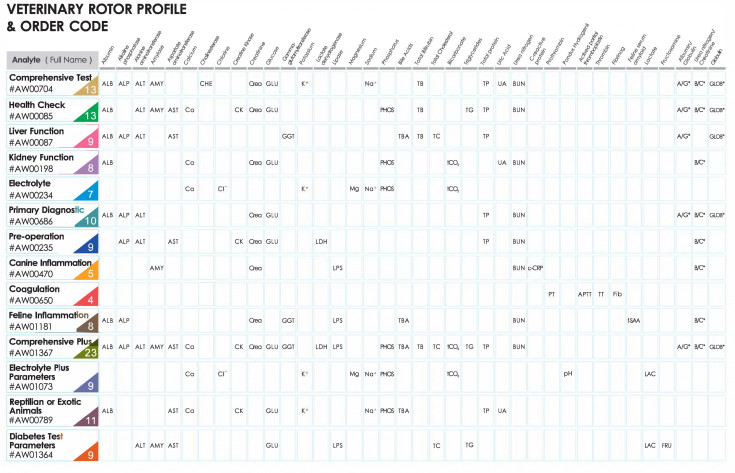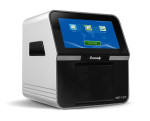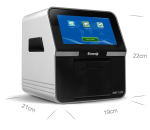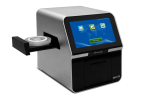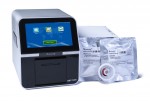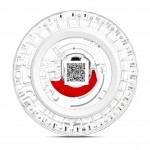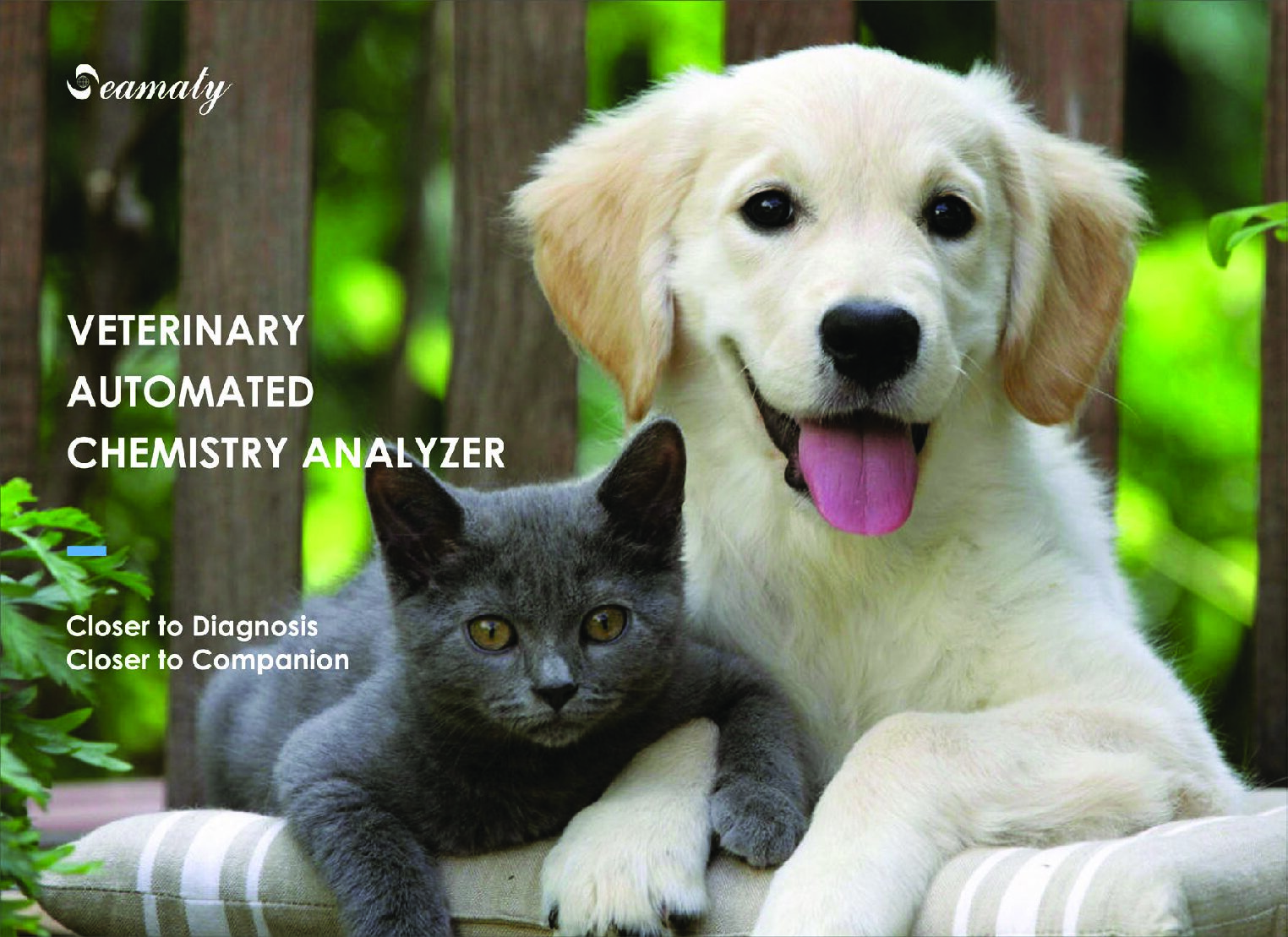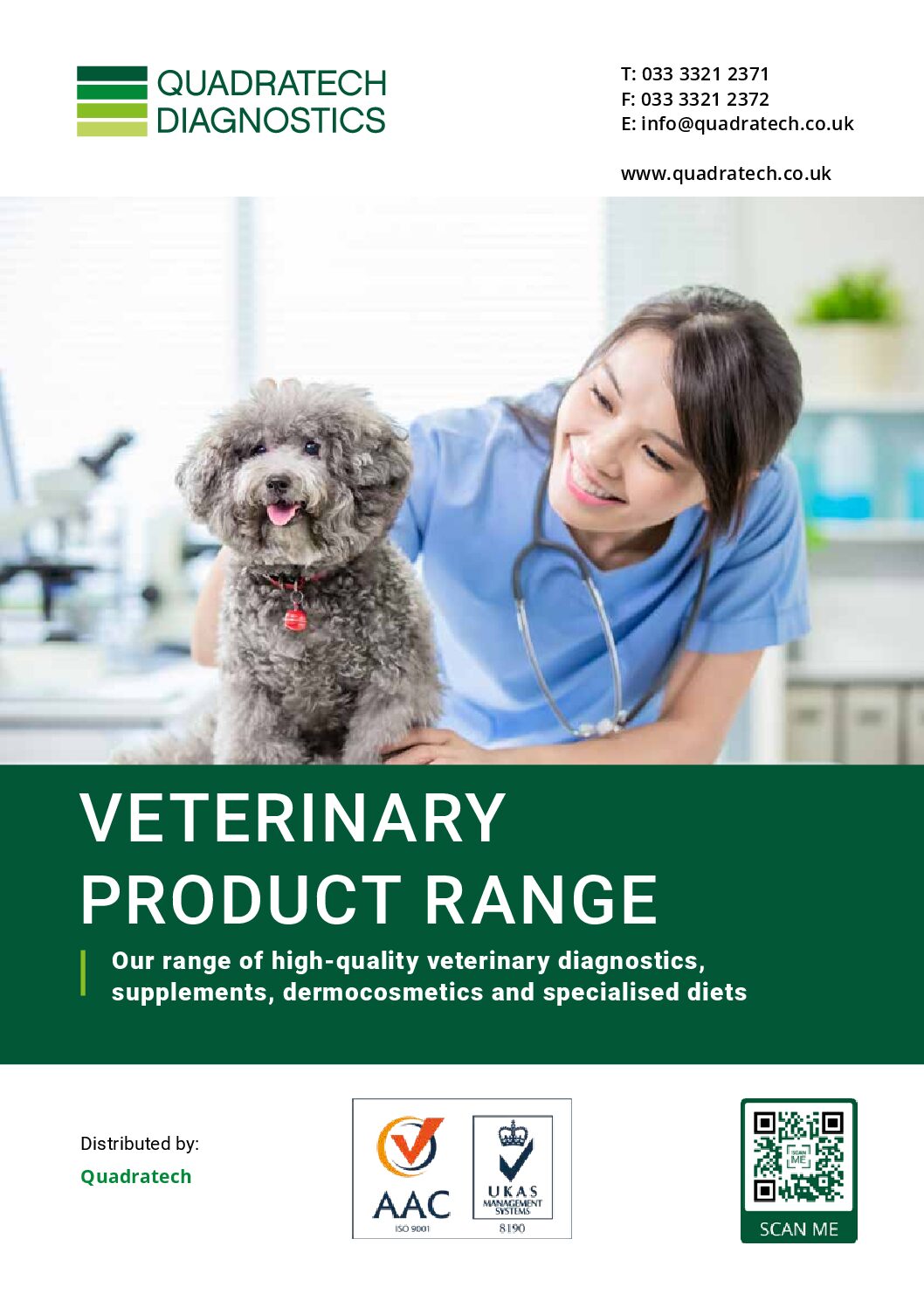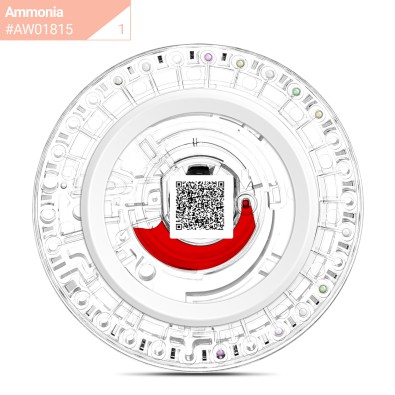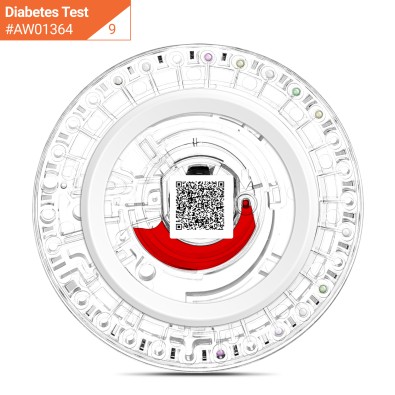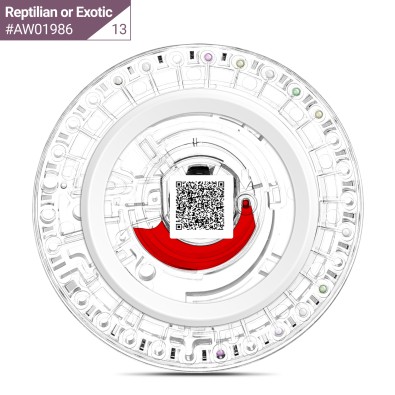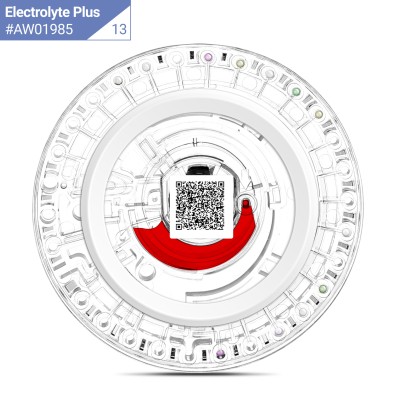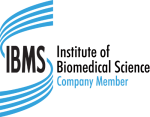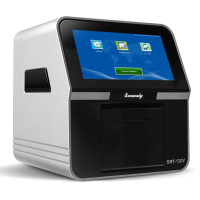
SMT-120V Fully Automated Veterinary Biochemistry Analyser for Animal Health Diagnosis
SMT-120V Fully Automated Veterinary Biochemistry Analyser for Animal Health Diagnosis
We're always working hard to give our customers as much information on products and the best price possible. If you need any assistance or would like a quote please contact us and we will be happy to help
-
Product Summary:
The SMT-120V Fully Automated Veterinary Biochemistry Analyser for Animal Health Diagnosis (A00120VETEN0) is a fully automated veterinary biochemistry analyser for animal health diagnosis. Suitable for the biochemical diagnosis of small pets and alternative pets, and applicable across a wide range of species. Manufactured by Seamaty.
SMT-120V is a state-of-the-art full automatic biochemical analyzer for animal diagnosis. The Seamaty 120VP Vet Chemistry Analyzer can test up to 24 parameters at one time with precision reference laboratory quality results. No professional operation skills are required. The analyzer contains built-in centrifuge, QR code, Intelligent Quality Control. Full automatic operation, no need to add diluent and centrifuge. The test results will be printed automatically after 12 minutes as part of it’s easy 3-step operation: sample injection, insertion of the reagent disc and automatic result printing. Weighing just 5kg, the SMT-120V is your compact and portable solution to rapid, on-site diagnosis.
EASY TO USE
- No professional operation skills are required.
- Suitable for the biochemical diagnosis of small pets and alternative pets. Applicable across a wide range of species.
- Three steps to results: 1) Inject Sample – 2)Insert Cartridge – 3)Print Results!
ACCURATE
- Accurate reference laboratory quality results – utilizes photometric colorimetric principle (superior to light reflection principle).
- Closed dry biochemistry, electrolyte, immunoassay and coagulation analyser – reduces potential operator error.
- Cartridge mould guarantees consistent test sample and dilution volumes – eliminates random error and cross-contamination.
- QC and calibration occurs automatically and in real time during analysis.
FAST
- Results in 12 minutes per sample.
- Fast turnaround enables diagnosis during consultation, with no need to send samples away.
MICRO SAMPLE
- The cartridge needs just 100ul of sample.
- No need for centrifugation or diluents.
PORTABLE AND SMART
- Compact – small footprint.
- 5kg (21 cm x 19 cm x 22 cm).
- Aluminum alloy casing.
- Android touch screen and built-in thermal printer.
- 4G storage (>100,000 results).
MINIMAL MAINTENANCE
- All fluids are self-contained within the cartridge – no need for internal pumps or valves.
- No maintenance contracts or consumables.
- Up to 3 Year Warranty
MULTI-PARAMETER
- Up to 35 testing Parameters (25 in a single test)
- Wide range of assays for anti-coagulated WB, Serum, Plasma
- Dry reagents have a good shelf life – minimises waste
VETERINARY BIOCHEMISTRY PROFILES
The Reagent discs of Seamaty contain integrated components of optical and mechanical functions, and cooperate with the instrument to participate in each stage of blood analysis. The current range of Vet chemistry profiles are:
- Comprehensive Test (AW02015): For providing complete chemistry and electrolyte analysis for pre-anaesthetic, general health, ill patient, geriatric and wellness testing.
- Health Check (AW01981): For screen of disease and routine check-ups. A cost-effective cartridge that evaluates the level of liver function, kidney function, myocardium, and blood lipids all in one cartridge.
- Liver Function (AW01984): For the evaluation and diagnosis of liver function. The features of the cartridge are total bile acid (TBA) and glutamyl transpeptidase (GGT) which are important for detecting disease of cats.
- Kidney Function (AW02991): For Kidney Evaluation and monitoring in cats and dogs of all ages as well as implementing and streamlining your renal function monitoring protocol.
- Electrolyte Plus (AW01985): 13 parameters and is ideal for testing for clinical treatment of severe water loss and heart failure.
- Primary Diagnostic (AW00686): For the physical examination and primary diagnosis, and it can also be used in the routine diagnosis of healthy animals.
- Reptilian or Exotic Animals (AW01986): 13 parameters and is an important test panel for Reptilian or Exotic Animal diagnostics.
- Pre-Operation (AW01982): For basic health screen before surgery.
- Canine Inflammation (AW02014): The advantage of the Canine Inflammation cartridge is the testing of canine C-creative protein(C-CRP), the performance of C-crp is much better than the white blood cells in the diagnosis of canine inflammation.
- Coagulation (AW00650): For the diagnosis of poisoned animals and parvovirus.
- Feline Inflammation (AW01987): An important inflammatory indicator and prognostic marker for cats. f-SAA (Feline serum amyloid A) is an acute phase protein, secreting in the acute phase of inflammation, increasing in the onset and recurrence.
- Comprehensive Plus (AW01980): 24 parameters allowing comprehensive health checkups and examination of diseases. The coverage of the parameters is very comprehensive, involving multiple biochemical groups such as liver, kidney, pancreas, myocardium, ion, protein, and metabolism.
- Diabetes Test (AW01364): 9 parameters and is an important test panel for diabetes diagnosis.
- Ammonia (AW01815): for the detection of elevated levels of blood ammonia.
ANIMAL LIST – (not exhaustive, species can be added by user):
Canine Bovine Leporine Feline Caprine Ovine Equine Murine Anguine Avine Porcine and more! AVAILABLE ANALYTE PARAMETERS
Analytes Organ Clinical Significances ALB (Albumin) Liver Liver secretion, liver disease, kidney disease, dehydration, gastrointestinal diseases or parasites TP (Total Protein) Systemic Kidney disease, dehydration or gastrointestinal diseases GLOB* (TP-ALB) Systemic Chronic inflammatory disease including filariasis, virus, parasite or bacterial infection A/G* (ALB/GLOB) Liver Low A/G may caused by renal dysfunction, amyloidosis, inflammation, infection, gastrointestinal disease, immune-induced liver failure or malabsorption TB (Total Bilirubin) Liver and Gallbladder Anemia or bile duct disease GGT (Gamma-GT) Liver and kidney Liver disorder AST (Aspartate Aminotransferase) Liver Liver or muscle disease ALT (Alanine Aminotransferase) Liver Liver disease or liver disorder ALP (Alkaline Phosphatase) Liver Liver disease CHE (Cholinesterase) Liver Decreased activity is an indicator of liver disorder TBA (Bile Acids) Liver Chronic liver disease AMY (Amylase) Pancreas Pancreatic disease LPS Pancreas Determine the cause of prerenal or postrenal LOH (Lactate Dehydrogenase) Liver Liver diseases, especially in birds and reptiles CK (Creatine Kinase) Muscle Muscle injury or neurological disease HBDH (a-hydroxybutyrate dehydrogenase) Liver Myocardium, liver function indicators. CREA (Creatinine) Kidney Muscle metabolites, kidney disease or urethral obstruction UA (Uric Acid) Kidney Kidney disease, especially in birds and reptiles BUN (Blood Urea Nitrogen) Kidney Kidney disease, and sometimes other reasons, such as diet, liver disease or dehydration can also cause abnormal U/C* (BUN/Crea) Kidney Indication of pancreatic disease GLU (Glucose) Systemic Physical condition of pets is poor or sick, such as diabetes may cause abnormal FRUC (Fructosamine) Systemic Reflect the average level of blood glucose in the blood for 1 to 2 weeks, diabetes monitoring is of great significance. LAC (Lactate) Systemic It is an indicator of diagnosis, monitoring and prognosis of clinical emergency and severe cases. TC (Cholesterol) Liver and kidney Liver disease, kidney disease or endocrine abnormalities TG (Triglycerides) Pancreas/Systemic Indicator of fat content in blood !CO, (Bicarbonate) Systemic Primary metabolic alkalosis and acidosis, primary respiratory alkalosis and acidosis Ca (Calcium) Systemic A variety of diseases, such as lactation, malnutrition, cancer etc. PHOS (Phosphorus) Kidney Increased phosphorus level are indicators of kidney disease, especially in advanced nephropathy Mg (Magnesium) Kidney Disorder of adrenal glands or renal K+ (Potassium) Systemic Provide the most important buffer environment for cells and help maintain acid-base balance and osmotic pressure Na+ (Sodium) Systemic Maintain the body osmotic pressure and acid-base balance and transmission nerve impulses c1- (Chlorine) Systemic Mainly in the extracellular fluid, to maintain cell integrity by osmotic pressure pH (Pondus Hydrogenii) Systemic Blood pH index NH, (AMMONIA) Liver Liver function index f-SAA (Feline SAA) Systemic Diagnose acute inflammation caused by bacterial and viral infections, monitor the therapeutic effect of inflammation and infection, and monitor patient surgery c-CRP (Canine CRP) Systemic Diagnose acute inflammation caused by bacterial infection, monitor the therapeutic effect of inflammation and infection, and monitor patient surgery APTT (Actived partial thromboplastin) Systemic A high second value may be due to a lack of endogenous coagulation factors, and surgery may involve bleeding risks. Thrombosis and myocardial infarction may occur when the second value is low PT (Prothrombin) Systemic A high second value may be due to a lack of exogenous coagulation factors, and surgery may involve bleeding risks. Thrombosis and myocardial infarction may occur when the second value is low TT (Thrombin) Systemic A high second value may be due to the period of DIC hyperfibrinolysis, increased FOP or decreased fibrinogen, and there may be a risk of bleeding during surgery Fib (Fibrinog) Systemic Low levels may be due to congenital fibrinogen deficiency or severe liver disease, and there may be a risk of bleeding during surgery. High content may cause thrombosis and myocardial infarction -
Product RangeProduct CodeA00120VETEN0Product NameSMT-120V Fully Automated Veterinary Biochemistry Analyser for Animal Health DiagnosisProduct CategoryProduct BrandProduct Analyte or ApplicationActivated Partial Thromboplastin (APTT)
Alanine Aminotransferase (ALT)
Albumin (ALB)
Albumin/Globulin (ALB/GLOB*)
Alkaline Phosphatase (ALP)
Ammonia (NH3)
Amylase (AMY)
Aspartate Aminotransferase (AST)
Bilirubin
C-Reactive Protein (CRP)
Calcium (Ca)
Chlorine (Cl)
Cholinesterase (CHE)
Creatine Kinase (CK)
Creatinine (Crea)
Feline Serum Amyloid (f-SAA)
Fibrinogen (FIB)
Gamma-glutamyltrasferase (GGT)
Globulin (GLOB*)
Glucose (GLU)
Lactate (LAC)
Lactate Dehydrogenase (LDH)
Lipase (LPS)
Magnesium (Mg)
Phosphorus (PHOS)
Pondus Hydrogenii (PH)
Potassium (K+)
Prothrombin (FII)
Sodium (Na+)
Thrombin (FIIa)
Total Bile Acids (TBA)
Total Carbon Dioxide/Bicarbonate (TCO2)
Total Cholesterol (TC)
Total Protein (TP)
Triglycerides (TG)
Urea Nitrogen (BUN)
Urea Nitrogen/Creatinine (BUN/Crea*)
Uric Acid (UA)Product Size1 x 1 unitProduct Storage2°C to 8°C -
-

Seamaty SMT-120V Biochemistry Analyser Testimonial - Clinica Veterinaria Briantea
A testimonial from Dr Ape, Director of the Briantea Veterinary Clinic in Carugo, Italy.

Seamaty SMT-120V Biochemistry Analyser Testimonial - Gammavet
A testimonial from Dr Cusaro, Gammavet Veterinary Clinic in Seregno, Italy.
